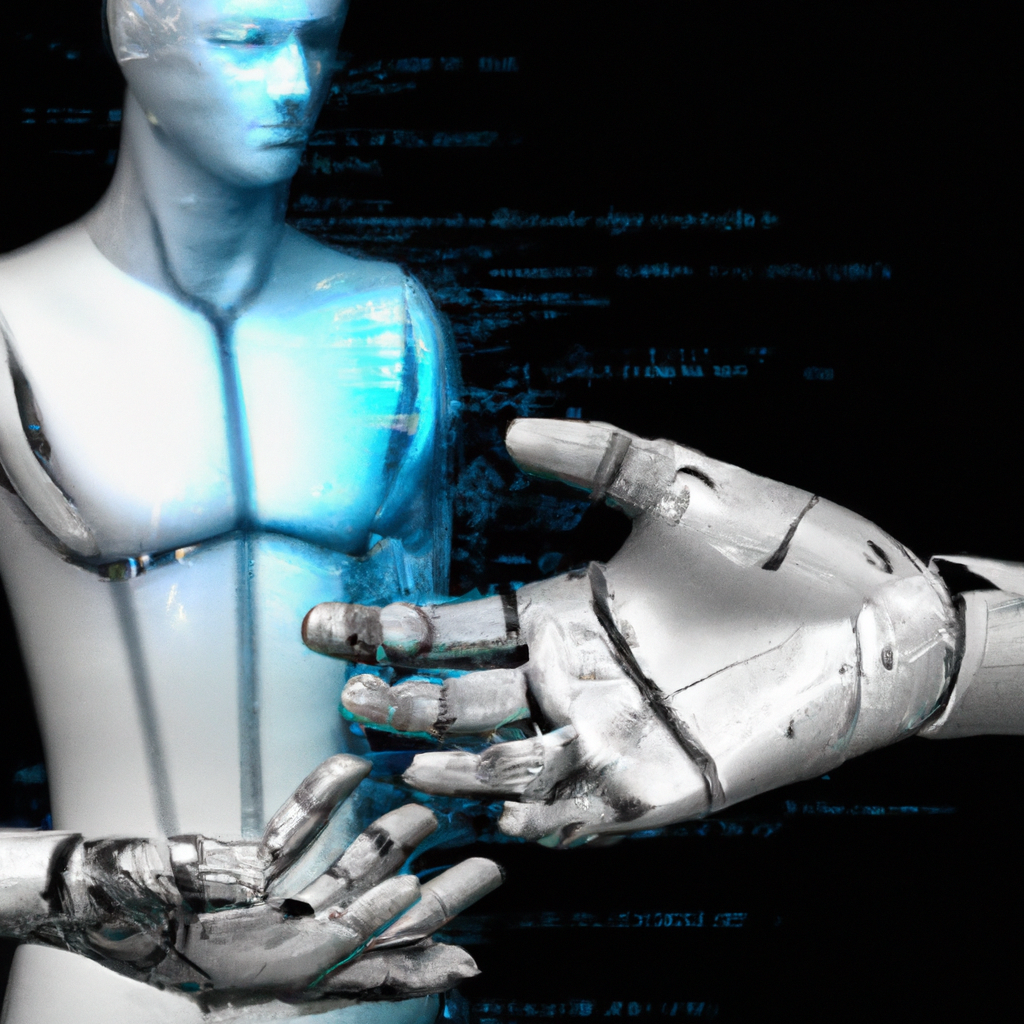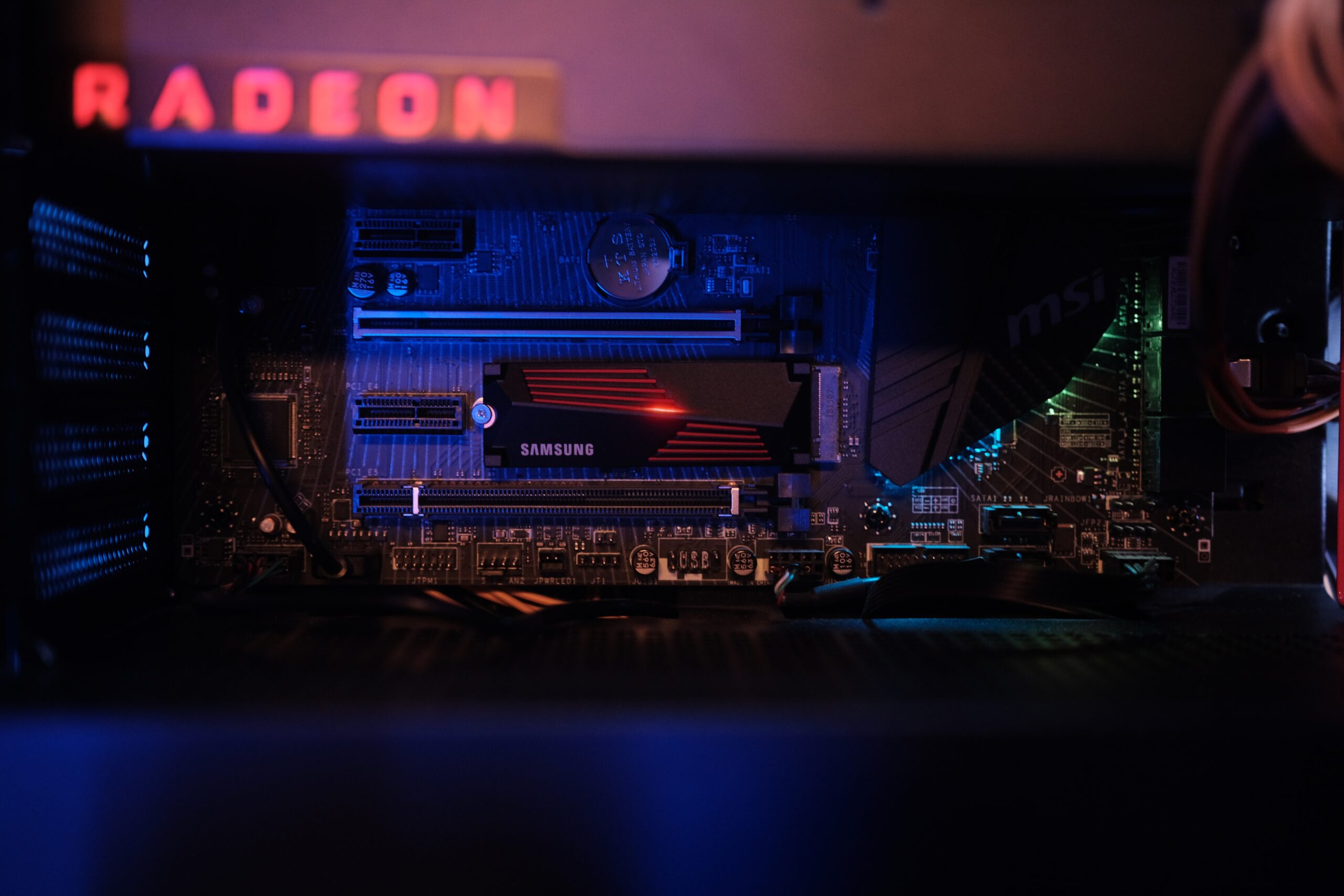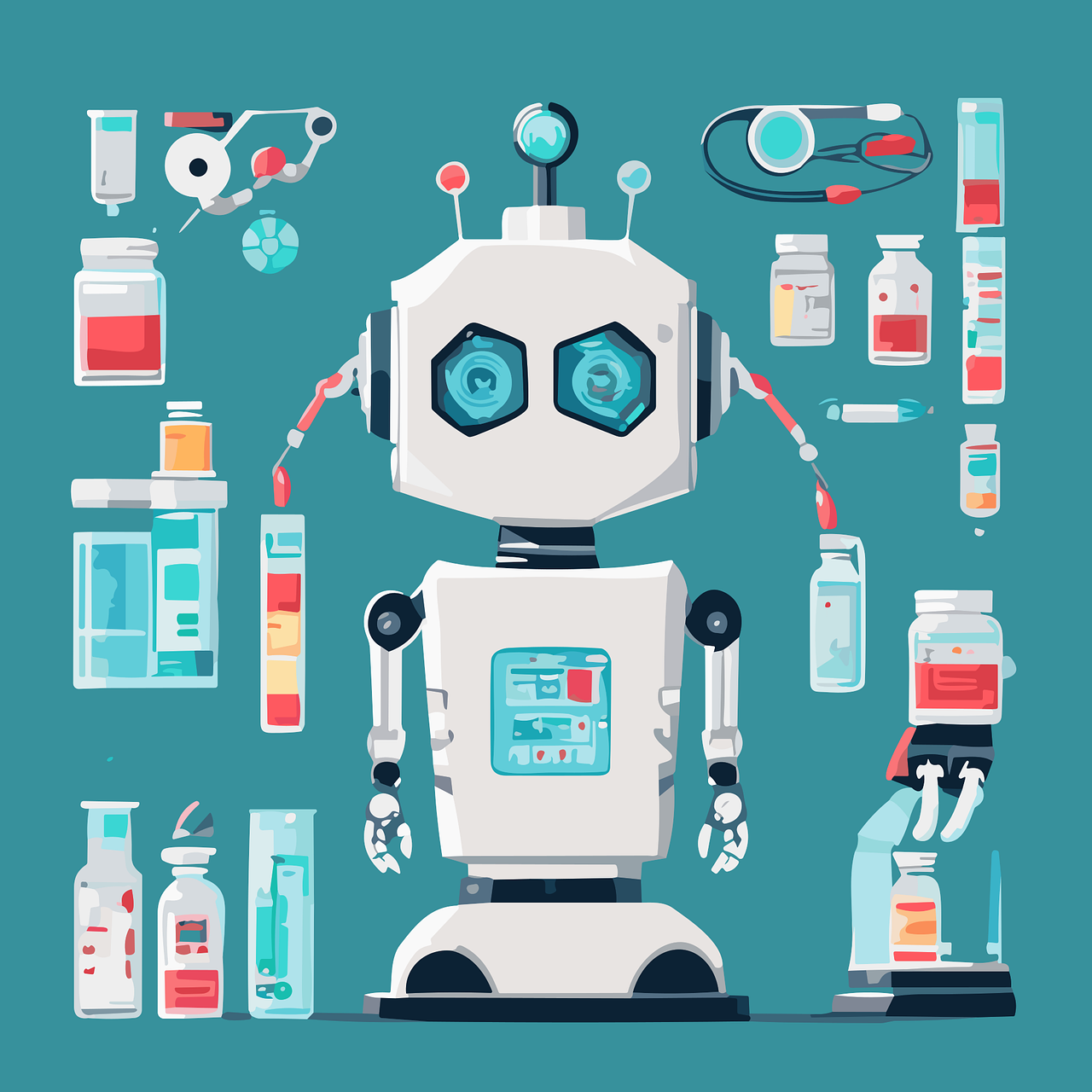Imagine a world where computers can think and learn just like humans. This may sound like something out of a science fiction novel, but it could soon become a reality with the emergence of cognitive clouds. Cognitive clouds are a new type of computing technology that combines the power of cloud computing with artificial intelligence. By leveraging machine learning algorithms, these cognitive clouds can analyze vast amounts of data and make intelligent decisions in real-time. In this article, we will explore the potential of cognitive clouds and how they could revolutionize the way we interact with technology. Get ready to be amazed by the future of computing!
Understanding Cognitive Computing
Cognitive computing is a revolutionary approach to computer science that aims to mimic the human brain’s ability to think, reason, and learn. It goes beyond traditional computing by incorporating aspects of artificial intelligence (AI), machine learning, natural language processing, and data analytics to deliver intelligent and adaptive solutions. In simple terms, cognitive computing systems are designed to understand, interpret, and respond to human-like interactions and provide meaningful insights and recommendations.
What is cognitive computing?
Cognitive computing involves the development of computer systems that can analyze vast amounts of structured and unstructured data, understand human language, and make personalized recommendations based on context. Unlike traditional computing, which relies on predetermined algorithms, cognitive computing systems are capable of learning and improving their performance over time. They can understand natural language, recognize patterns, and extract relevant information from disparate data sources to enable intelligent decision-making.
History and evolution of cognitive computing
The concept of cognitive computing traces its roots back to the 1950s, with the advent of AI research. However, it was not until recent years that the necessary computing power, data availability, and advancements in machine learning algorithms paved the way for the exponential growth of cognitive computing. IBM’s Watson, a cognitive computing system, gained significant attention when it defeated human champions in the game show Jeopardy! in 2011. Since then, cognitive computing has evolved rapidly and found applications in various industries, revolutionizing the way we interact with technology.
Key features of cognitive computing
Cognitive computing systems possess several key features that distinguish them from traditional computing. These features include natural language processing, machine learning, data analytics, adaptive learning, and the ability to reason and make decisions. Natural language processing enables cognitive systems to understand and interact with humans, while machine learning allows them to improve their performance through experience. Data analytics play a crucial role in extracting insights from large volumes of data, and adaptive learning ensures that the system continuously evolves and adapts to new situations. Lastly, the ability to reason and make decisions enables cognitive systems to provide valuable recommendations and solutions.
Cognitive computing Vs traditional computing
Traditional computing relies on predefined algorithms and structured data to perform tasks. It operates in a deterministic manner, following a set of rules and instructions. Cognitive computing, on the other hand, deals with unstructured data and uses machine learning and AI techniques to make sense of it. Cognitive systems can understand natural language, learn from experience, and derive insights from complex data sets, enabling them to provide more contextually relevant and personalized solutions. While traditional computing is efficient in executing specific tasks, cognitive computing excels in handling ambiguity and making sense of complex and dynamic information.
Introduction to Cognitive Clouds
Cognitive clouds are an extension of cognitive computing that harness the power of cloud computing to deliver intelligent and scalable solutions. They combine the capabilities of cognitive computing with the benefits of cloud infrastructure, offering businesses access to vast computing resources, real-time data processing, and scalable storage capabilities. Cognitive clouds provide a platform for developing and deploying AI-driven applications and services, enabling organizations to leverage advanced cognitive capabilities without significant upfront investments in infrastructure and expertise.
Definition and function of cognitive clouds
Cognitive clouds are highly advanced cloud computing systems that integrate cognitive computing technologies into their framework. They are designed to understand and process massive amounts of data in real-time, enabling organizations to derive meaningful insights and make intelligent decisions. Cognitive clouds provide a range of functions, including natural language processing, pattern recognition, sentiment analysis, predictive modeling, and recommendation systems. They offer businesses the capability to transform raw data into actionable information and deliver personalized experiences to their customers.
Components of cognitive clouds
Cognitive clouds consist of several components that work together to enable intelligent processing and analysis of data. These components include data storage and management systems, cognitive engines, machine learning algorithms, and application programming interfaces (APIs) for seamless integration with existing systems. Data storage and management systems ensure the secure storage and accessibility of data, while cognitive engines process and analyze the data using AI and machine learning techniques. Machine learning algorithms help the system learn and improve its performance over time, while APIs enable businesses to integrate cognitive capabilities into their applications and services.
How cognitive clouds work
Cognitive clouds follow a three-step process to deliver intelligent insights and services. The first step involves data ingestion, where the cognitive cloud collects data from various sources such as social media, IoT devices, and enterprise databases. The second step is data processing and analysis, where the cognitive system applies machine learning algorithms and cognitive computing techniques to extract meaningful insights from the data. This step involves natural language processing, sentiment analysis, image recognition, and other cognitive capabilities. The final step is delivering the insights or recommendations to the end-users through applications or APIs. This process ensures that businesses can leverage the power of cognitive computing to enhance decision-making and improve customer experiences.

The Role of Artificial Intelligence in Cognitive Clouds
Artificial Intelligence (AI) plays a crucial role in enhancing the functionality and capabilities of cognitive clouds. AI techniques enable cognitive clouds to understand, learn, and reason like humans, providing advanced cognitive capabilities to businesses and organizations.
The link between AI and cognitive clouds
AI provides the foundation for cognitive computing and cognitive clouds. It encompasses a wide range of techniques and technologies that enable machines to simulate human intelligence. Cognitive clouds leverage AI techniques such as machine learning, natural language processing, and neural networks to process and analyze vast amounts of data. By integrating AI into cognitive clouds, businesses can harness the power of intelligent computing and deliver personalized experiences to their users.
How AI enhances the functionality of cognitive clouds
AI enhances the functionality of cognitive clouds in several ways. Machine learning algorithms enable cognitive systems to learn from patterns and data, improving their performance over time. Natural language processing allows cognitive clouds to understand and interact with humans, enabling a more intuitive user experience. Neural networks and deep learning techniques enhance the accuracy and efficiency of data analysis, enabling cognitive clouds to derive insights and make predictions. AI also enables cognitive clouds to automate tasks, reducing the need for manual intervention and improving operational efficiency.
Examples of AI-driven cognitive cloud platforms
Several AI-driven cognitive cloud platforms have gained popularity in recent years, offering businesses a range of tools and services to leverage the power of cognitive computing. IBM Watson, for instance, combines AI, machine learning, and deep learning capabilities to provide businesses with advanced analytics, natural language processing, and image recognition. Microsoft Azure Cognitive Services offers a suite of AI APIs that enable businesses to integrate cognitive capabilities such as speech and language understanding, computer vision, and emotion recognition into their applications. Google Cloud AI provides businesses with AI-powered solutions for language processing, image analysis, and data insights.
Benefits and Advantages of Cognitive Clouds
Cognitive clouds offer numerous benefits and advantages to businesses across various industries. They have the potential to transform business intelligence, automate tasks, enhance data management and analysis, and deliver customized user experiences.
Improving business intelligence
Cognitive clouds enable organizations to derive meaningful insights from large volumes of structured and unstructured data. By leveraging advanced cognitive capabilities, businesses can analyze customer behavior, identify trends, and make data-driven decisions. Cognitive clouds can process and analyze data in real-time, allowing businesses to respond quickly to changing market conditions and customer needs. By improving business intelligence, cognitive clouds help organizations gain a competitive edge and drive innovation.
Automation of tasks through cognitive clouds
Cognitive clouds can automate repetitive and mundane tasks, freeing up valuable human resources for more strategic and creative roles. By leveraging AI capabilities, cognitive clouds can process and analyze data, generate reports, and make recommendations without significant human intervention. This automation not only improves operational efficiency but also reduces the risk of human error and enables organizations to focus on higher-value activities.
Data management and analysis
Cognitive clouds provide businesses with advanced data management and analysis capabilities. They can ingest, process, and analyze massive amounts of data from various sources, helping organizations gain valuable insights into customer preferences, market trends, and operational efficiencies. Cognitive clouds can identify patterns, detect anomalies, and predict future outcomes, enabling businesses to make data-driven decisions and optimize their strategies.
Customized user experience
Cognitive clouds enable businesses to create personalized and engaging user experiences. By leveraging AI techniques, cognitive clouds can understand user preferences, interests, and behaviors, and tailor recommendations and content accordingly. This level of personalization enhances customer satisfaction, drives customer engagement, and improves brand loyalty. Cognitive clouds can also analyze user feedback and sentiment, enabling organizations to continuously improve their products and services.

Challenges and Limitations of Cognitive Clouds
While cognitive clouds offer immense potential, they also face several challenges and limitations that need to be addressed for successful implementation and adoption.
Technical challenges
Implementing cognitive clouds requires advanced technological capabilities, including robust infrastructure, high-performance computing, and sophisticated AI models. Setting up and maintaining the necessary infrastructure can be complex and expensive, requiring organizations to invest in skilled resources and expertise. Additionally, cognitive clouds rely on large volumes of data for analysis, and organizations need to ensure they have access to high-quality and relevant data to derive meaningful insights.
Data security and privacy concerns
Cognitive clouds deal with sensitive and proprietary data, raising concerns about data security and privacy. Organizations need to ensure that adequate security measures are in place to protect data from unauthorized access and breaches. They also need to comply with data protection regulations and industry standards to maintain customer trust. Addressing these concerns requires robust encryption mechanisms, secure data storage, and comprehensive data governance policies.
Issues with integration and compatibility
Integrating cognitive clouds with existing systems and infrastructure can be challenging. Organizations often have legacy systems and applications that are not designed to work seamlessly with cognitive capabilities. Ensuring compatibility and interoperability between different systems requires careful planning and technical expertise. Organizations need to assess their existing architecture, identify integration points, and develop robust interfaces and APIs for smooth data flow between systems.
The need for constant updates and maintenance
Cognitive clouds rely on advanced AI models and algorithms that need to be continuously updated and maintained. AI models require periodic training and retraining to adapt to changing data patterns and market dynamics. Organizations need to invest in resources and processes to ensure the accuracy and reliability of cognitive cloud systems. This includes monitoring and evaluating system performance, addressing bugs and issues, and staying up-to-date with the latest advancements in AI and cognitive computing.
Cognitive Clouds in Various Industries
Cognitive clouds have the potential to revolutionize various industries by enabling intelligent decision-making and transforming customer experiences.
Use of cognitive clouds in healthcare
In the healthcare industry, cognitive clouds can analyze patient data, medical records, and research papers to provide personalized treatment recommendations and predictive insights. They can assist healthcare professionals in diagnosing diseases, identifying potential drug interactions, and predicting patient outcomes. Cognitive clouds can also automate administrative tasks, streamline workflows, and improve the efficiency of healthcare operations.
Impact on the retail industry
Cognitive clouds can enhance the retail industry by analyzing customer data, shopping patterns, and social media sentiments to deliver personalized product recommendations and targeted marketing campaigns. They can help retailers optimize inventory management, pricing strategies, and supply chain logistics. Cognitive clouds can also enable retailers to provide virtual shopping assistants, chatbots, and interactive shopping experiences, enhancing customer engagement and satisfaction.
Role in the finance sector
In the finance sector, cognitive clouds can analyze market data, news feeds, and customer transactions to provide real-time insights and predictive analytics. They can assist financial institutions in fraud detection, risk assessment, and investment portfolio management. Cognitive clouds can also automate customer service interactions, provide personalized financial advice, and streamline regulatory compliance processes.
Cognitive clouds in manufacturing
Cognitive clouds can transform the manufacturing industry by analyzing production data, sensor data, and quality assurance records to optimize manufacturing processes and detect abnormalities. They can enable predictive maintenance, minimizing downtime and improving overall equipment effectiveness. Cognitive clouds can also facilitate supply chain visibility, demand forecasting, and inventory optimization, helping manufacturers streamline operations and reduce costs.

Cognitive Clouds and Big Data
Cognitive clouds are particularly well-suited to handle the challenges and opportunities presented by big data.
Handling of big data by cognitive clouds
Cognitive clouds can handle the massive volumes of structured and unstructured data typically associated with big data. Their scalability and processing power enable organizations to ingest, process, and analyze data from various sources, including social media, IoT devices, and enterprise applications. Cognitive clouds can extract relevant insights, identify patterns, and make predictions based on large and diverse data sets.
Benefits of big data analysis with cognitive clouds
Big data analysis with cognitive clouds enables organizations to gain deeper insights and derive more accurate predictions from their data. By analyzing large and diverse data sets, cognitive clouds can identify hidden patterns and correlations that traditional analytics may miss. Big data analysis with cognitive clouds also allows organizations to perform real-time analysis and make data-driven decisions faster. The ability to process and analyze big data in a timely manner provides organizations with a competitive advantage and empowers them to innovate and adapt to changing market conditions.
Challenges of big data in cognitive clouds
Despite the benefits, there are challenges in leveraging big data with cognitive clouds. The sheer volume and velocity of big data require robust infrastructure and high-performance computing capabilities. Organizations need to invest in scalable storage solutions, distributed computing frameworks, and advanced analytics tools to handle big data effectively. Additionally, ensuring data quality and relevance is critical for accurate analysis. Organizations need to cleanse, transform, and validate their data to maintain data integrity and derive meaningful insights.
Future Trends in Cognitive Cloud Computing
Cognitive cloud computing is poised to undergo significant advancements and transformation in the coming years. Several emerging technologies and trends are set to reshape the landscape of cognitive cloud computing.
Emerging technologies in cognitive cloud computing
One of the emerging technologies in cognitive cloud computing is edge computing, which brings cognitive capabilities closer to the data source, enabling real-time processing and analysis. Another emerging trend is the integration of blockchain technology with cognitive clouds to ensure secure and transparent data sharing. Quantum computing is also expected to revolutionize cognitive cloud computing by enhancing computational capabilities and enabling faster and more complex data analysis.
Potential growth and expansion areas
The adoption of cognitive cloud computing is expected to grow rapidly across various industries, including healthcare, retail, finance, and manufacturing. As organizations recognize the potential of cognitive capabilities to transform their operations and deliver enhanced customer experiences, the demand for cognitive cloud solutions is likely to increase. Moreover, the expansion of IoT devices and the increasing availability of real-time data will further drive the growth of cognitive cloud computing.
Cognitive cloud computing in the age of IoT
The proliferation of IoT devices will generate massive amounts of data, requiring intelligent and scalable solutions for processing and analysis. Cognitive cloud computing is expected to play a pivotal role in handling and extracting insights from IoT data. The integration of cognitive capabilities into IoT platforms will enable organizations to capitalize on the vast potential of IoT devices and derive meaningful insights from the data they generate. Cognitive cloud computing will facilitate real-time decision-making, predictive maintenance, and personalized user experiences in the IoT ecosystem.

Real-world Examples of Cognitive Cloud Applications
Real-world businesses and organizations have successfully implemented cognitive cloud applications, leveraging the power of cognitive computing and cloud infrastructure to drive innovation and improve outcomes.
Case studies of businesses using cognitive clouds
One notable case study is the healthcare industry’s use of cognitive cloud technology to improve patient care. Many hospitals and healthcare providers utilize cognitive cloud platforms to analyze patient data, medical records, and research papers. By leveraging cognitive capabilities, healthcare professionals can make more accurate diagnoses, personalize treatment plans, and improve patient outcomes.
Success stories from various industries
The retail industry has also seen success in leveraging cognitive cloud applications. Retailers use cognitive cloud platforms to analyze customer data, predict buying patterns, and offer personalized recommendations. By utilizing cognitive capabilities, retailers can enhance the customer experience, drive sales, and improve customer satisfaction and loyalty.
Lessons learned from real-world implementations
Real-world implementations of cognitive cloud applications have provided valuable insights and lessons learned. One key lesson is the importance of data quality and relevance in deriving meaningful insights. Organizations need to ensure that their data sources are reliable, up-to-date, and suitable for analysis. Additionally, collaboration and partnerships between businesses and cognitive cloud providers are critical to successful implementation. Organizations need to work closely with providers to understand their specific needs, customize solutions, and ensure smooth integration with existing systems.
The Future of Cognitive Clouds: The next big leap in computing?
The future of cognitive clouds looks promising, with significant advancements and innovations on the horizon. Several factors point to cognitive clouds becoming the next big leap in computing.
Analyzing current market trends
Current market trends indicate a growing demand for intelligent and scalable solutions that can handle the complexities and challenges of big data. Businesses across various industries are recognizing the potential of cognitive computing and cloud infrastructure to transform their operations and gain a competitive edge. The increasing adoption of AI and machine learning across industries further supports the potential of cognitive clouds to become the next big thing in computing.
Predicted advancements in the field
Advancements in AI, machine learning, and cloud infrastructure are expected to drive the evolution of cognitive clouds. As AI techniques and algorithms continue to improve, cognitive clouds will become more intelligent, contextually aware, and self-learning. Cloud infrastructure advancements, such as edge computing and quantum computing, will enable faster and more efficient cognitive processing. These advancements will further enhance the capabilities and performance of cognitive clouds, making them even more valuable to businesses.
The potential impact of cognitive clouds in the tech world
Cognitive clouds have the potential to disrupt the tech world and revolutionize the way businesses operate. They can enable organizations to leverage the power of cognitive computing without significant upfront investments in infrastructure and expertise. The scalability, flexibility, and affordability offered by cognitive clouds make them an attractive option for businesses looking to enhance their competitiveness and agility. As more organizations adopt cognitive cloud solutions, we can expect to see a significant impact on the tech industry and the overall computing landscape.











